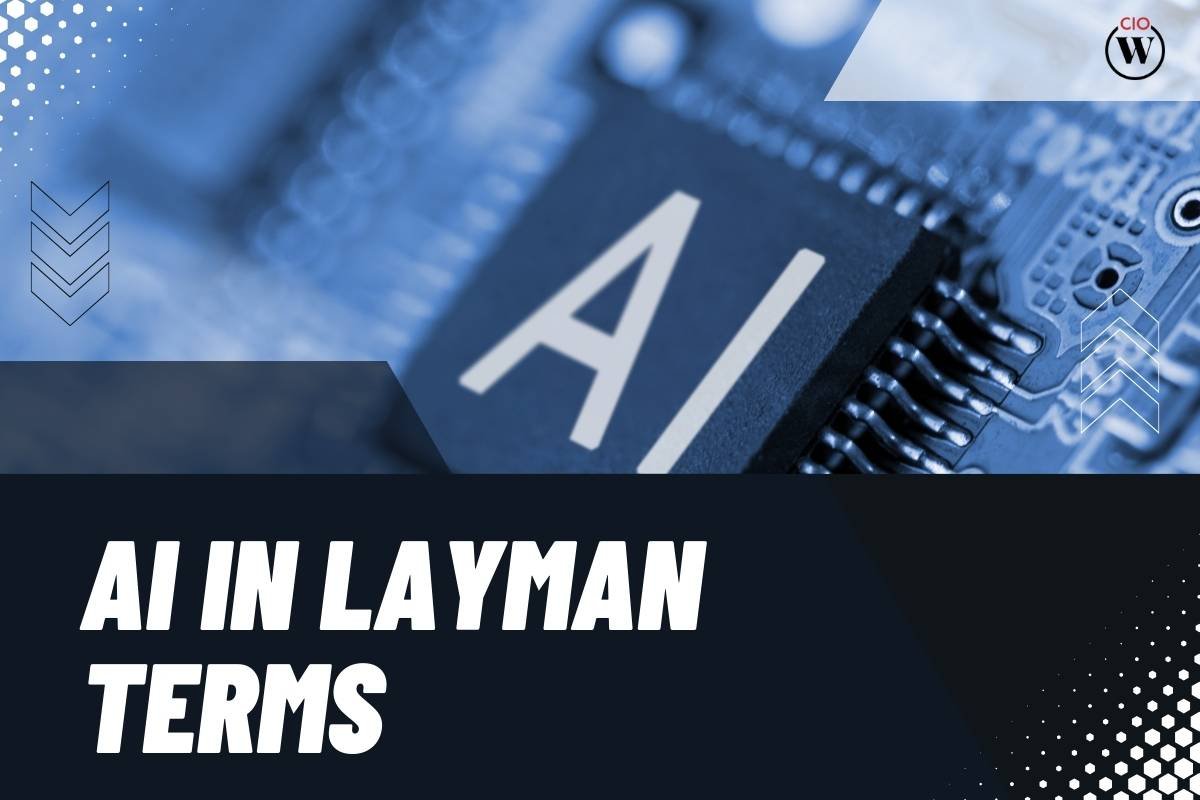Artificial Intelligence, i.e.AI in layman terms refers to the simulation of human intelligence in machines that are programmed to think and learn like humans. In this article, we will explore the fascinating world of AI, breaking down complex concepts into simpler terms to help everyone understand the impact, applications, and challenges associated with this transformative technology.
Understanding AI:
At its core, AI in layman terms involves creating computer systems that can perform tasks that typically require human intelligence. This encompasses a wide range of activities, from problem-solving and decision-making to speech recognition and language translation. The goal is to develop machines that can imitate human cognitive functions, making them capable of learning from experience and adapting to new situations.
Applications of AI in Everyday Life:
AI is already woven into the fabric of our daily lives, often without us realizing it. Search engines, social media algorithms, and virtual assistants like Siri and Alexa are examples of AI in action. These technologies use complex algorithms to understand user preferences, predict behavior, and provide personalized recommendations.

In healthcare, AI assists in diagnosing diseases by analyzing medical images and data, offering faster and more accurate results. AI is also making its mark in the automotive industry, powering self-driving cars and improving overall safety on the roads. Moreover, in education, AI-driven tools help personalize learning experiences, adapting to individual student needs and providing valuable insights to educators.
AI in Layman Terms – Breaking it Down:
Let’s break down the concept of AI in simpler terms. Imagine AI as a super-smart assistant that learns from experience and continuously improves over time. Picture it as the brain behind your smartphone, predicting what apps you might need, suggesting music you may like, or even helping you compose messages with predictive text. AI, in layman terms, is like having a digital companion that understands you better with each interaction.
Machine Learning – The Heart of AI:
Machine learning is a crucial component of AI. In layman terms, machine learning is a process where computers learn from data and improve their performance without explicit programming. Think of it as training a computer to recognize patterns and make decisions based on examples rather than strict instructions. The more data the machine processes, the better it becomes at making accurate predictions or decisions.

For instance, in the context of online shopping, machine learning algorithms analyze your past purchase history, preferences, and behavior to suggest products you might be interested in. This is how AI tailors recommendations to suit your individual tastes, making your online shopping experience more enjoyable and efficient.
Deep Learning – Unraveling the Layers:
Deep learning is a subset of machine learning that involves neural networks with multiple layers, known as deep neural networks. In simpler terms, imagine deep learning as the process of creating a digital brain with multiple layers that work together to solve complex problems. Each layer processes specific features of the data, allowing the system to recognize intricate patterns and nuances.
An example of deep learning in layman terms is image recognition. When you upload a photo to a social media platform, deep learning algorithms analyze the image at various levels, identifying objects, faces, and even emotions. This capability enables platforms to automatically tag people in photos, providing a seamless and user-friendly experience.
AI in Layman Terms – The Good and the Concerns:
AI brings tremendous benefits, but it also raises concerns that are important to understand in layman terms. On the positive side, AI enhances efficiency, automates mundane tasks, and contributes to innovation in various industries. In healthcare, AI can assist doctors in diagnosing diseases faster and more accurately, potentially saving lives.
However, concerns arise regarding job displacement as automation becomes more prevalent. In layman terms, this means some tasks traditionally performed by humans may be taken over by machines, impacting certain job sectors. It becomes crucial to strike a balance between the benefits and potential challenges posed by AI to ensure a harmonious integration into society.
Ethical Considerations in AI:
When delving into AI in layman terms, it’s essential to touch upon ethical considerations. AI systems are only as good as the data they are trained on, and biases present in the data can be perpetuated by the AI. In simple terms, if the data used to train an AI system contains biases, the AI system may inadvertently reinforce those biases.

For instance, if historical hiring data is biased towards certain demographics, an AI system trained on that data may perpetuate the same biases when screening job applicants. Understanding these ethical implications is vital in ensuring that AI benefits society without inadvertently causing harm or reinforcing existing inequalities.
The Future of AI in Layman Terms:
Looking ahead, the future of AI in layman terms holds exciting possibilities. Imagine a world where AI-powered medical diagnostics are even more accurate, self-driving cars become the norm, and everyday tasks are automated to make our lives more convenient. While this future is promising, it’s essential to approach the development and deployment of AI with careful consideration and ethical guidelines.
Conclusion:
In conclusion, AI in layman terms is about creating machines that can learn, think, and make decisions like humans. It’s the technology behind personalized recommendations, smart assistants, and innovative solutions across various industries. By understanding the basics of AI, its applications, and ethical considerations, we can navigate the evolving landscape of artificial intelligence with informed perspectives. As AI continues to shape the world around us, embracing its potential while addressing its challenges will be key to ensuring a positive and inclusive future for all.








